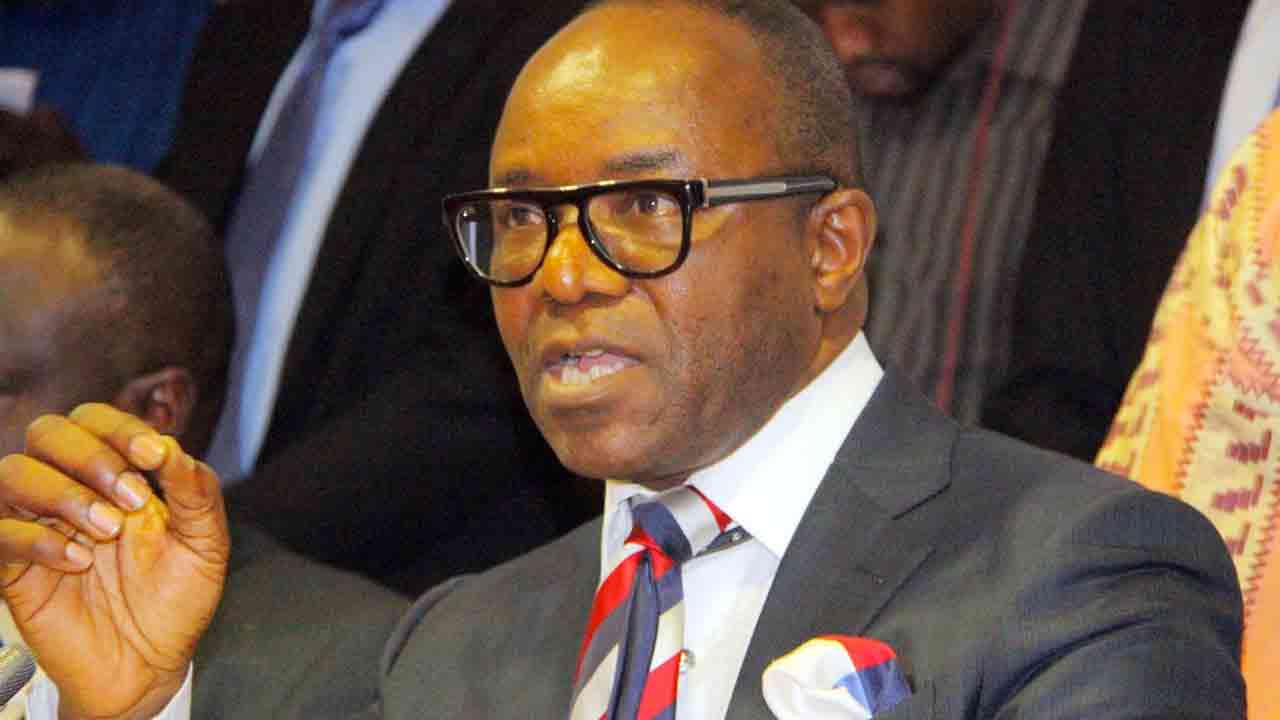- FG, Oil Majors Sign $5.1bn JV Settlement Deal
The Federal Government on Thursday signed a deal with Shell, Chevron, Total, Eni and Exxon Mobil to clear unpaid bills worth $5.1bn for oil production joint ventures piled up over many years.
The Minister of State for Petroleum Resources, Dr. Ibe Kachikwu, said in a speech at the signing ceremony that the deal would unlock new investment in the country’s oil and gas sector, adding that the repayment would take place over the coming five years.
He said the oil majors had given the country a discount of $1.7bn, lowering the original amount from $6.8bn.
The agreement will also ensure that future Nigerian payments to production joint ventures with oil majors would be paid in time, according to the minister.
Kachikwu also said that Forcados exports would resume soon, without giving any more precise information. The grade has been under force majeure since February after multiple attacks on the pipelines that carry it to the export terminal.
The exit from joint ventures cash call agreements between the Nigerian National Petroleum Corporation and international oil companies will lead to an increase in the country’s revenue by $2bn annually, the Federal Government has said.
This is coming as Vice President Yemi Osinbajo announced that the elimination of subsidy on petroleum products had removed a monthly financial burden of N15.4bn on the Federal Government.
Osinbajo disclosed this on the occasion of the signing of an agreement for joint venture cash call exit and presentation of the 2016 petroleum sector scorecard by the Federal Ministry of Petroleum Resources in Abuja on Thursday.
“The downstream oil sector has been deregulated through the elimination of petroleum subsidy, among others. The elimination of petroleum subsidy has removed from the government a burden of not less than N15.4bn monthly,” the Vice President, who was represented by the Attorney General of the Federation and Minister of Justice, Abubakar Malami, said.
On the significance of the cash call exit, the Petroleum Resources ministry, in a document made available to our correspondent in Abuja, stated that the move would restructure the financing template for oil earnings, increase investments and boost government revenues.
It said the agreement would bring clarity and stability to the management of the country’s main revenue source, adding that the exit had already received the approval of the Federal Executive Council.
The ministry explained that the exit was part of new measures and strategies aimed at eliminating the burden of joint venture cash call arrears and securing future funding for the upstream petroleum sector.
It said, “These strategies, which are fully supported by the National Economic Council, will lead to an increase in national production from the current 2.2 million barrels per day to 2.5mbpd by 2019, as well as reduction in unit technical costs from $27.96/barrel oil equivalent to $18/boe.
“The net payments to the Federation Account is expected to double from about $7bn to over $14bn by 2020, and the immediate effect of the new cash call policy will increase net Federal Government of Nigeria revenue per annum by about $2bn.”
Kachikwu pledged that the ministry would continue to drive innovation and change in its approach to delivering an oil and gas industry that would be internationally competitive and governed by open and transparent processes to ensure security of investment for both domestic and international investors.

 Billionaire Watch3 weeks ago
Billionaire Watch3 weeks ago
 Startups4 weeks ago
Startups4 weeks ago
 News4 weeks ago
News4 weeks ago
 News4 weeks ago
News4 weeks ago
 Bitcoin4 weeks ago
Bitcoin4 weeks ago
 Naira4 weeks ago
Naira4 weeks ago
 Forex3 weeks ago
Forex3 weeks ago
 Treasury Bills4 weeks ago
Treasury Bills4 weeks ago

























